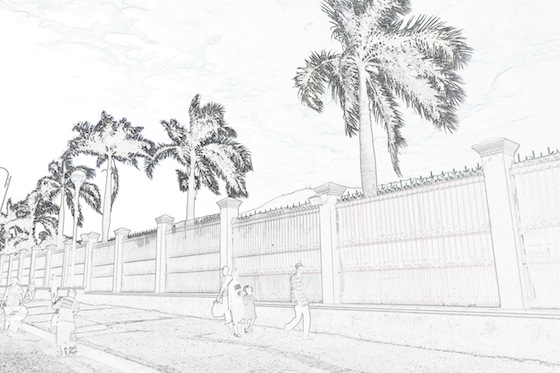By Ilio Durandis
CJ Contributor
THE CURRENT political climate in Haiti is rapidly becoming very worrisome, and it does not bode well for the immediate future of the nation.
It is as if we are witnessing a version of the “Monty Hall Problem” playing out in Haiti. The three branches of the government represent the three doors and behind each of them lies a trap.
It will take great ingenuity, self-sacrifice, and professionalism from all actors to prevent a repeat of recent history and the collapse of Haitian society into chaos.
Political antics are not new to Haiti, but, this time around, the stakes are too high to make believe that those who have heavily invested in Haiti would sit idle and let things deteriorate to a point of total disintegration before they protect the so-called stability of the past few years.
Not only is whatever is left of Haiti’s sovereignty at stake, but the very foundation of this experiment with democracy is being challenged.
This should not be the legacy that Haiti’s current political leaders envision to leave to the next generation. Haiti has come too far to keep moving backward.
For every political stalemate, logic dictates, there must a political solution. The political stakeholders must convene to find a solution for the glory of the nation, for the honor of its brave founders and for the survival of the generations yet to be born.
Crisis after crisis, plot after plot, distraction after distraction, and yet the welfare of the Haitian people does not seem to be ameliorating.
The physical landscape of the nation continues to deteriorate, and the valour of being Haitian is still in many ways being ridiculed the world over.
A government of the people must make it a priority to listen to its people. A government by the people ought to respect the norms and laws set forth by all its people. And a government for the people owes it to the people to defend and protect the interests of all.
In Haiti, the politics of personal interest must be replaced with the politics of communal interest. Those in power must not govern for only those they know, but they must reach out to serve every Haitian citizen, regardless of their political ideology or their step on the social ladder.
Those in the opposition must not see their role as the builders of a Berlin Wall to the government, but rather as a professional competitor that seeks to get the best out of an adversary; after all, as Pierre Corneille puts it: “Triumph without peril brings no glory.”
The three branches of Haiti’s government are letting the people down.
They are shaming Haitians throughout the globe. There is no harmonization in governing among them. There is no trust between them. And it does not seem that they want the same end result for the country.
The Haitian constitution prescribes that each branch should be independent from the influence of the others, and explicitly describes the role that each should play to make the nation’s democracy grows, with the result being an economy and society that works.
Civil matters become state affairs, and, in return, most state affairs are left to be dealt with either by foreign NGOs or foreign embassies within the nation’s territory. This cannot be the way to have a progressive democracy.
Important matters, such as municipal and local elections, independence of the judiciary system, minimum wage law, children protection act, the legalization of the National Education Fund, decentralization, reforestation, public safety and more, rather than finding common ground to make them happen, the politicians are too busy talking of one scandal after another.
The nation is stuck in limbo, like the movie Inception: a dream within a dream.
There is the dream of some who want to see a better Haiti emerge within the next two decades, and there are also the dreams of a few who wants to hold the country hostage so they can pump their chests, maintaining power at all costs, and continuing to live large at the expense of the public.
The situation is worrisome, not because there is no alternative, but rather because those who are involved seem to have nothing to lose in whether Haiti prospers or not.
Haiti is at an impasse, with overdue elections and suspicion of corruption at seemingly all levels of government.
Haitian leaders can avoid the looming crisis ahead by rising to the occasion; put the welfare of the nation before their own and more importantly find a common purpose to govern for the common good. The clock is ticking, but there’s still time left to right this ship.
The last thing Haiti needs is a restart and, if something is not done soon, history will, unfortunately, repeat itself.
Ilio Durandis, a Caribbean Journal contributor, is the founder of Haiti 2015, a social movement for a just and prosperous Haiti. He is also a columnist with The Haitian Times.







